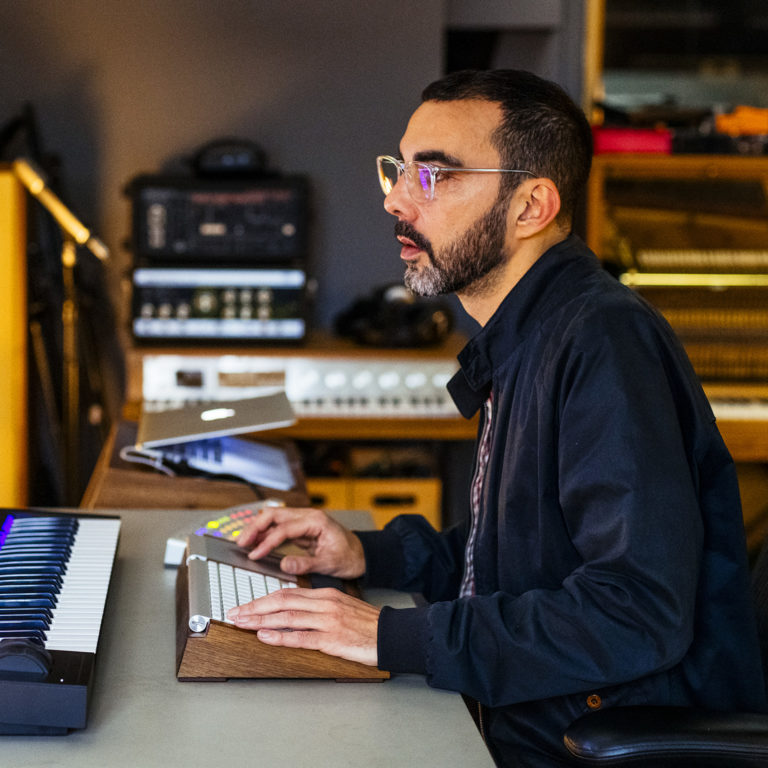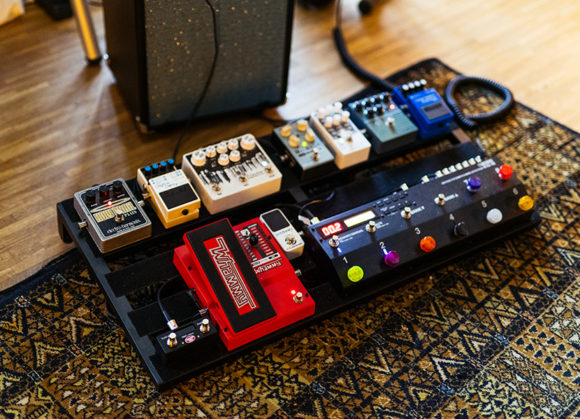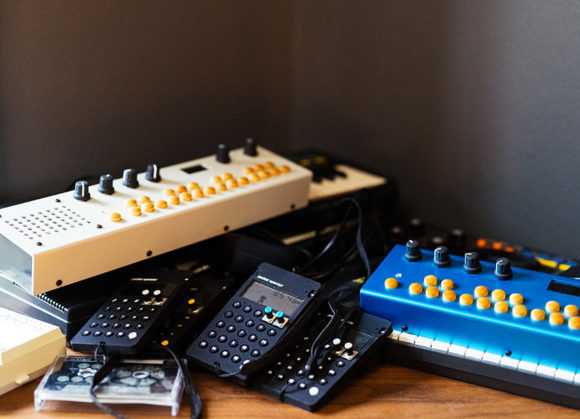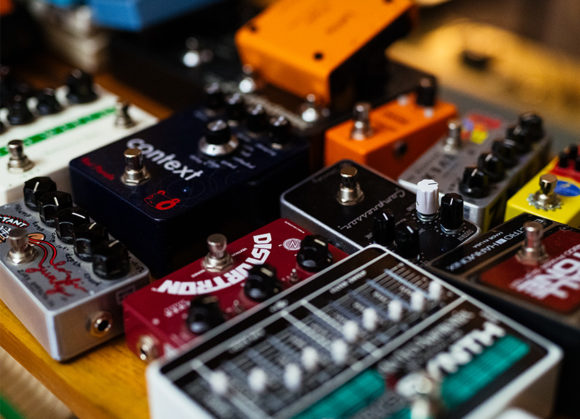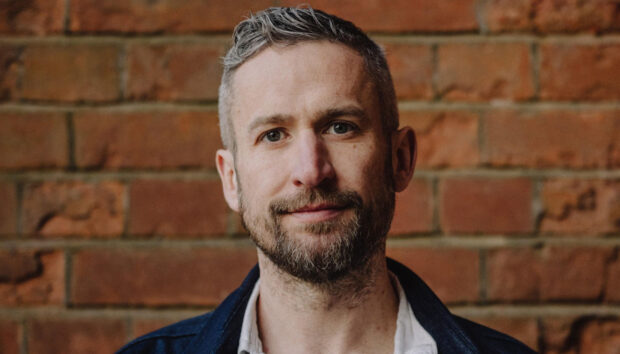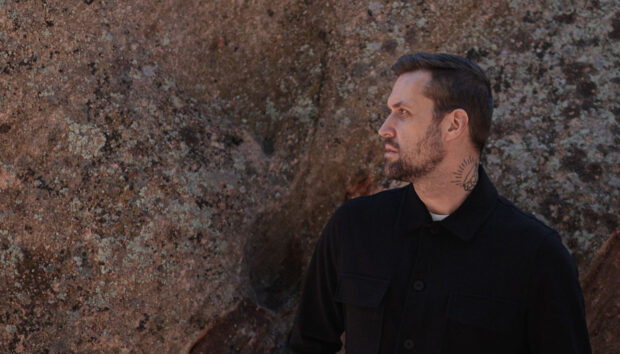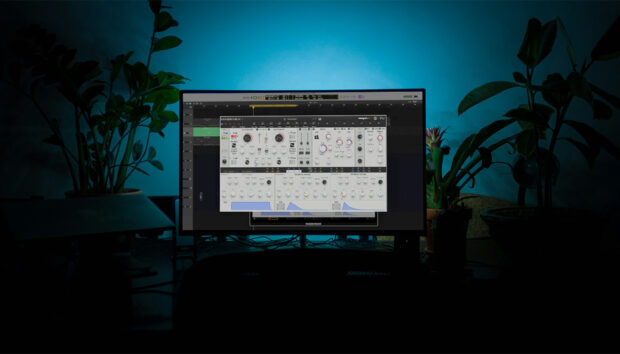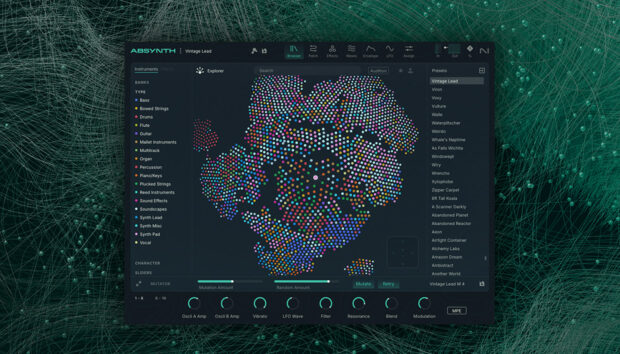To say that Ben Bazzazian’s spectrum as a producer is broad would be something of an understatement. From creating beats for German-language Netflix hit Skylines, to producing for German rap superstar Haftbefehl, or providing studio assistance to Rammstein, the Cologne-based producer is armed for every situation. What sets him apart from his producer peers is his unique sound, matched with some unconventional techniques.
To learn more about Bazzazian’s distinct sound and his career as an artist, read our conversation with him below and take a look at our latest collaboration with Bazzazian on the new Bazzazian Bundle that includes melodic instruments, drums, pads, and more processed through the finest rack gear and boutique pedals and infused with Bazzazian’s signature style.
Kabuki, himself a studio geek and sound design specialist visited Ben to chat about studio habits, distortion techniques for fat 808 kicks, and the latter’s work for Netflix.
Over the years, you’ve managed to create a very special position for yourself within the production game. What’s your goal when you go to the studio?
I’d like my music to be unique. I want to avoid sounding like anything you already know, so having my own sound is definitely a top priority.
If you use a preset from a synthesizer, for example, it sounds great, but 20,000 others might have used the exact same one. That’s boring.
There are always beats that everyone tries to emulate. Like all the flute productions you heard after “Mask Off”.
Exactly, and I’ve always tried to avoid that. I’m not saying that everyone else is just biting. That’s not the case, there are many who think like me. It’s a principle that was always above everything else for me. If you use a preset from a synthesizer, for example, it sounds great, but 20,000 others might have used the exact same one. That’s boring. I want it to sound different. Sometimes I take it to the extreme and tweak a preset until you don’t even know where it came from. But that’s not to say that I don’t want people to know where the sound comes from. I’m quite open with things like this. There was this song called “Ich Rolle Mit Meim Besten” on Haftbefehl’s “Russian Roulette” album. It has these distorted 808s. People explicitly asked me how I did it, so I told them: There are three 808s stacked (laughs). So it’s not about keeping secrets to myself, I just want to do it differently, my way. It doesn’t really matter if you tweak sounds on a synthesizer or use a virtual instrument, or even effect pedals – as long as it sounds unique.
It’s often the process that’s important, right? Like, “How far can I go until everything falls apart?”
And sometimes it’s too much. I suppose I wasn’t as open to experimenting with stuff back in the day as I am now. I’m more willing to try out different approaches nowadays. If I’m doing a song arrangement, for example, I keep experimenting with things. You’ll only find out if it works when you try it out. It’s super important not to be lazy about these things. Sometimes I do five remixes or more for a song, that way it becomes pretty easy to tell which on works best.
You have to challenge yourself and not be afraid to experiment.
There’s no secret to arranging pop songs. You can easily research the structure of the last 3,000 US number ones, but it would be super-boring if everyone just followed that one formula.
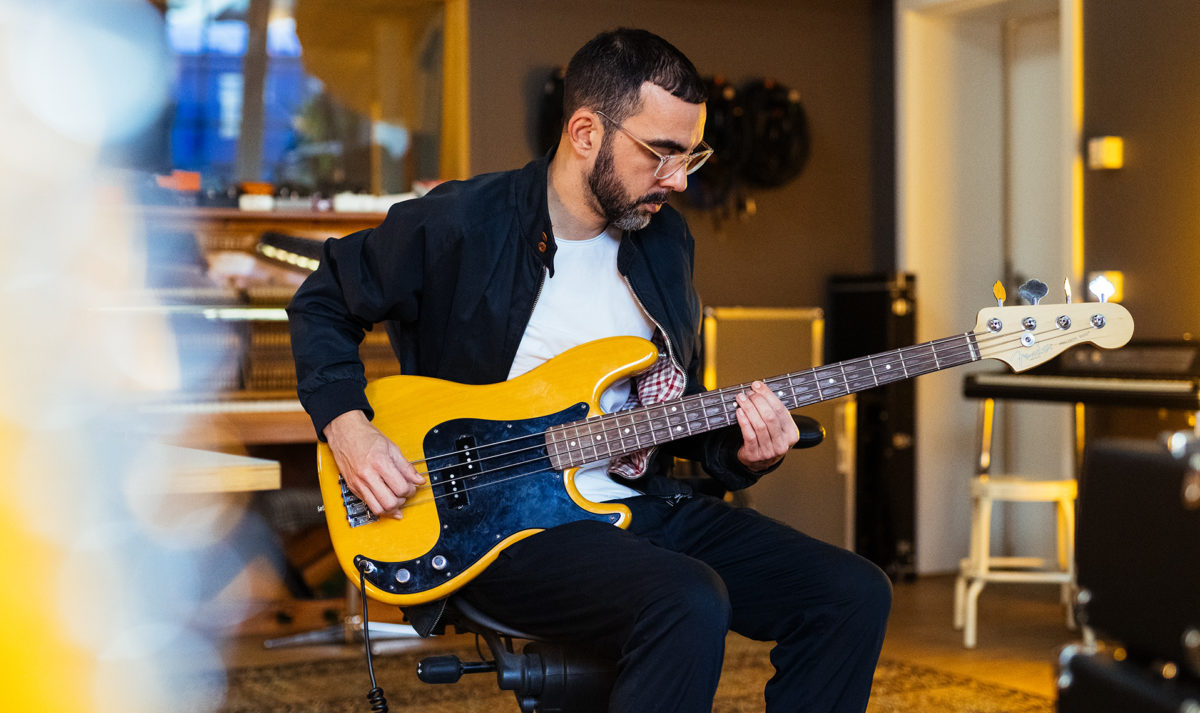
You’ll also never find your own voice that way.
Yeah. And finding your own way of expressing yourself musically is the most important aspect. Take all the libraries that are available from Native Instruments, for instance. They’re all good, and the first one who used them straight out the box was lucky. But everyone who comes along after that has to change something in order to not sound identical. Back when I started making beats, you had people like Timbaland and The Neptunes who were instantly recognizable. And I think it’s awesome if your sound just stands out compared the rest and has a direct connection to you as an individual. That was always my goal.
What struck me the most when I first heard your beats was that heavy drum sound. You seem to always add another layer of drums on top. Is that related to your punk background?
Certainly. And, it’s also related to my impaired hearing (laughs). It just has to have that oomph when it comes to certain types of music – that’s where drums play a huge role. Putting distortion on drums is key.
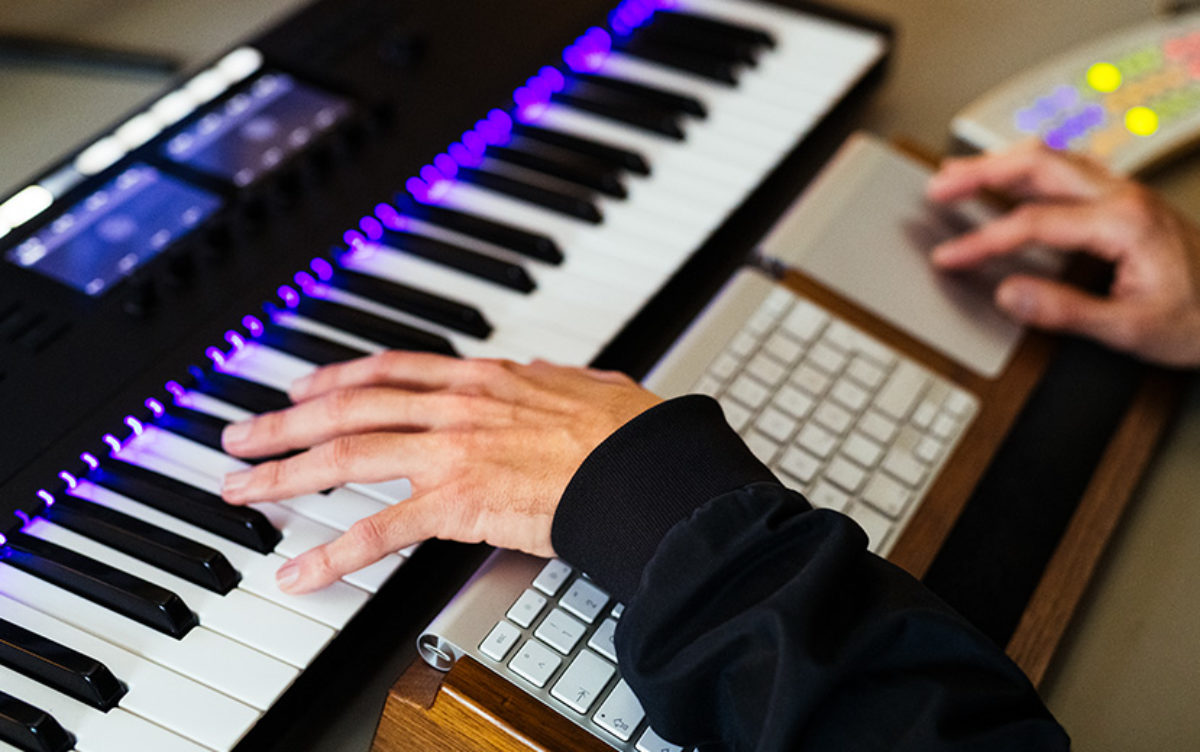
You used to work a lot with the Culture Vulture plugin, do you still use it?
I love distortion and the Culture Vulture is the Holy Grail – although, of course, there are other distortions that sound good, too. I think Decimort plays a big role in my drum sound.
How do you keep your drums punchy and present in the mix despite distortion – do you have a special technique?
I always use distortion as an insert on single sounds, like kick and snare, and then they’re chained on the drum bus. I like to use a tube overdrive like the Culture Vulture. Summing plugins are also an important tool for my drum sound because you can send the signal through virtual channel strips from different consoles, and color the sound again that way.
In addition to that particular drum sound, you also add a definite groove to your percussion. Do you use quantization, or are you placing hits individually by hand?
I do both. I always felt like the Neptunes groove was really special, for example, they often quantized the snare and kick drum quite heavily while leaving the hi-hats quite loose. That’s not necessarily how I do it, but it’s about that contrast. This whole dispute about groove and swing ratio really gets on my nerves. If it sounds cool, it’s cool, even if everything is quantized to sixteenths. I have quantization templates on autoload, everything from MPCs to an Emulator or Oberheim DMX is included. I’m mostly stuck at 52% of the MPC 3000 quantization set to sixteenth notes. Sometimes I even program everything by hand or leave it unquantized.
Let’s talk about Skylines. I was surprised to see how realistic the studio scenes were. The scene where the bit-crusher is being used on the snare is one of them. Were you consulted on this kind of thing?
The idea with the bit-crusher was actually mine. Dennis Schanz, the showrunner, asked me beforehand what you’d say in such situations. I just gave them some material.
Your song “Skyline Glänzt” plays an important role in the series and sounds like it was tailor-made for a live performance on Maschine. Did you already have that in mind during the production?
No, the beat was already made before, I hadn’t made it specifically for the show. The briefing was that they need a real banger that everyone in the series would go crazy to. It was a cool coincidence that the beat did so well in retrospect.
Tell me about your collaborations with other artists.
Most of the time I’m the producer for other artists, which is cool and I also enjoy it. At a certain point, that was not enough for me, and when I got to know Farhot, we decided to work together – that’s how Die Achse was born. So far we have released 2 EPs: Angry German and Hooligan, and we’re currently working on our debut album, which we hope will come later this year.
But I still do production work for other artists as well, just last year, for example, I produced the song “Mathematik” by Till Lindemann from Rammstein, featuring Haftbefehl. The session in the studio with Till Lindemann and Olsen Involtini was a lot of fun – something I won’t forget any time soon. While Olsen Involtini was producing Rammstein’s current album, he asked me if I would like to contribute some programming to a few songs. Of course, I couldn’t refuse. Of the three songs I worked on, one made it onto the album, “Ausländer”. I am currently working on the new album for Haftbefehl, which will come out this spring.
You often integrate outboard instruments or sound sources into your productions, do you have a certain method?
I often use external keyboards or effect pedals when I feel like something’s missing in the production. But I’m not an analog advocate either, I find this discussion boring. In the end, I don’t care where something comes from; if it sounds good, it does the trick. Sounds coming from outboard gear often do have something appealing to them – I can’t put my finger on what that is exactly, but there is something special there. I play around with software tools a lot as well, but using actual hardware is more fun. That’s why this thing is so cool (points to his MASCHINE) because it combines both.
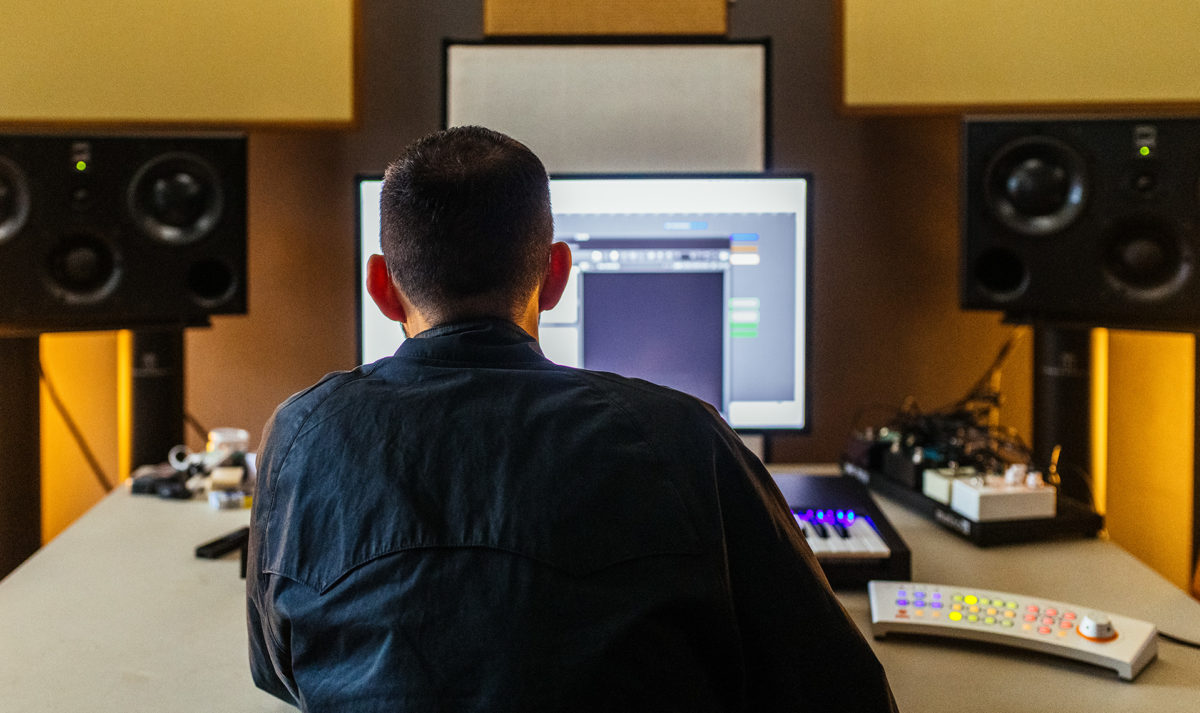
Do you usually lay down the foundation at the beginning of a production and later take care of the details?
Basically, yeah. But often you can’t really separate between music-making and tweaking the sounds. But I notice that sometimes I lose focus when I start mixing, tweaking sounds and doing sound design too early in the process. So I try to lay down the basic production before going into details. Throughout the years I trained myself to hold back and not change the whole thing too much if the vibe was right.
It’s about the interplay of tiny details, which then make up the overall picture.
I agree. Sometimes it’s just proper volume levelling. When I send out my productions for mix and master, everything’s already in place and sounds like it should. Then the engineers do another 20% here and there, pull out a few frequencies, and maybe add a few reverb algorithms. The engineers I work with are better than I am in terms of vocal processing. I also like this type of distribution of labour.
Do you have a philosophy when it comes to your role as a producer?
I find it stupid to do things just because you can do them. When it comes to other people’s productions, I don’t have to replace the snares just because I can. If something is cool, it can stay that way, even if it’s an Apple Loop. I only interfere with the sound if it makes sense. Just because I have this Korg MS-20 here, doesn’t mean I have to use it all the time. It’s not a matter of dogma. There are people who do everything on the computer, saying it sounds just as good and that they don’t need all the analog stuff. OK, but I don’t think you should just disregard practical tools, analog or digital.
I only interfere with the sound if it makes sense. Just because I have this Korg MS-20 here, doesn’t mean I have to use it all the time.
In the end, you may not be able to hear where something comes from, but you can hear whether or not the artist was inspired.
I agree. And that’s the important thing, the feeling. When a digital synthesizer gives me the vibe I want, cool.
Photos by Frederike Wetzels








